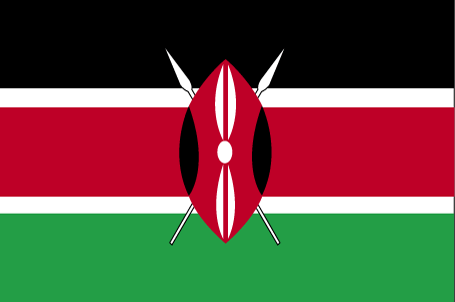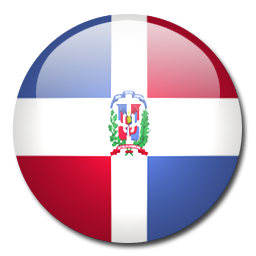| Kenya |

Background: | |
Founding president and liberation struggle icon Jomo KENYATTA led Kenya from independence in 1963 until his death in 1978, when President Daniel Toroitich arap MOI took power in a constitutional succession. The country was a de facto one-party state from 1969 until 1982 when the ruling Kenya African National Union (KANU) made itself the sole legal party in Kenya. MOI acceded to internal and external pressure for political liberalization in late 1991. The ethnically fractured opposition failed to dislodge KANU from power in elections in 1992 and 1997, which were marred by violence and fraud, but were viewed as having generally reflected the will of the Kenyan people. President MOI stepped down in December 2002 following fair and peaceful elections. Mwai KIBAKI, running as the candidate of the multiethnic, united opposition group, the National Rainbow Coalition (NARC), defeated KANU candidate Uhuru KENYATTA and assumed the presidency following a campaign centered on an anticorruption platform. KIBAKI's NARC coalition splintered in 2005 over a constitutional review process. Government defectors joined with KANU to form a new opposition coalition, the Orange Democratic Movement (ODM), which defeated the government's draft constitution in a popular referendum in November 2005. KIBAKI's reelection in December 2007 brought charges of vote rigging from ODM candidate Raila ODINGA and unleashed two months of violence in which as many as 1,500 people died. UN-sponsored talks in late February 2008 produced a power-sharing accord bringing ODINGA into the government in the restored position of prime minister. Kenya in August 2010 adopted a new constitution that eliminates the role of prime minister after the next presidential election. | |
Nationality: | |
noun: Kenyan(s) adjective: Kenyan | |
Ethnic Groups: | |
Kikuyu 22%, Luhya 14%, Luo 13%, Kalenjin 12%, Kamba 11%, Kisii 6%, Meru 6%, other African 15%, non-African (Asian, European, and Arab) 1% | |
Languages: | |
English (official), Kiswahili (official), numerous indigenous languages | |
Religions: | |
Protestant 45%, Roman Catholic 33%, Muslim 10%, indigenous beliefs 10%, other 2% note: a large majority of Kenyans are Christian, but estimates for the percentage of the population that adheres to Islam or indigenous beliefs vary widely | |
Population: | |
43,013,341 (July 2012 est.) country comparison to the world: 31note: estimates for this country explicitly take into account the effects of excess mortality due to AIDS; this can result in lower life expectancy, higher infant mortality, higher death rates, lower population growth rates, and changes in the distribution of population by age and sex than would otherwise be expected | |
Major Cities - Population: | |
NAIROBI (capital) 3.375 million; Mombassa 966,000 (2009) | |
| Statistics | |
| Percent Urbanization | 22 % |
| Total People Groups | 117 |
| Unreached People Groups | 30 |
| Region | East and Southern Africa |
| 10/40 Window | No |
| Official National Language | English |
| Secondary National Language | Swahili |
| Primary Religion | Christianity |
| Percent Christian Adherent | 80.0% [1] |
| Percent Evangelical | 42.2% [2] |
| Country Progress Level | 3.1  |
| Persecution Ranking | Not ranked (1=High to 50=Low OD) |
| Human Development Index | 0.470 (0=Low to 1=High UN) |














